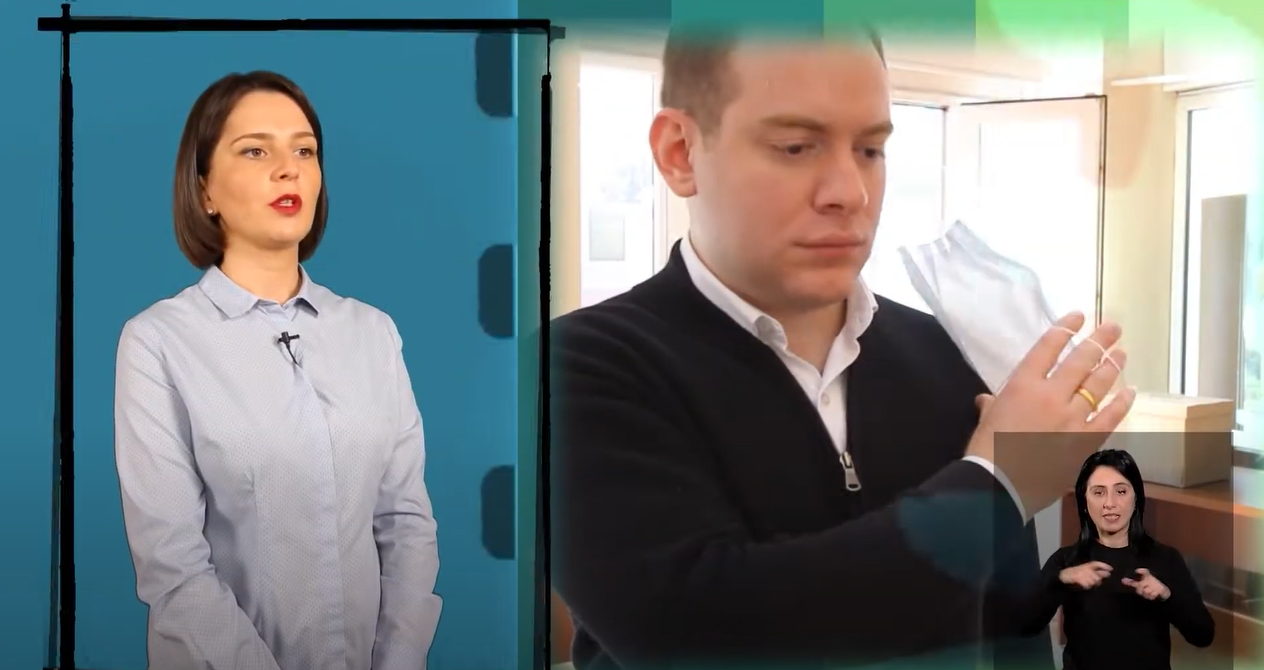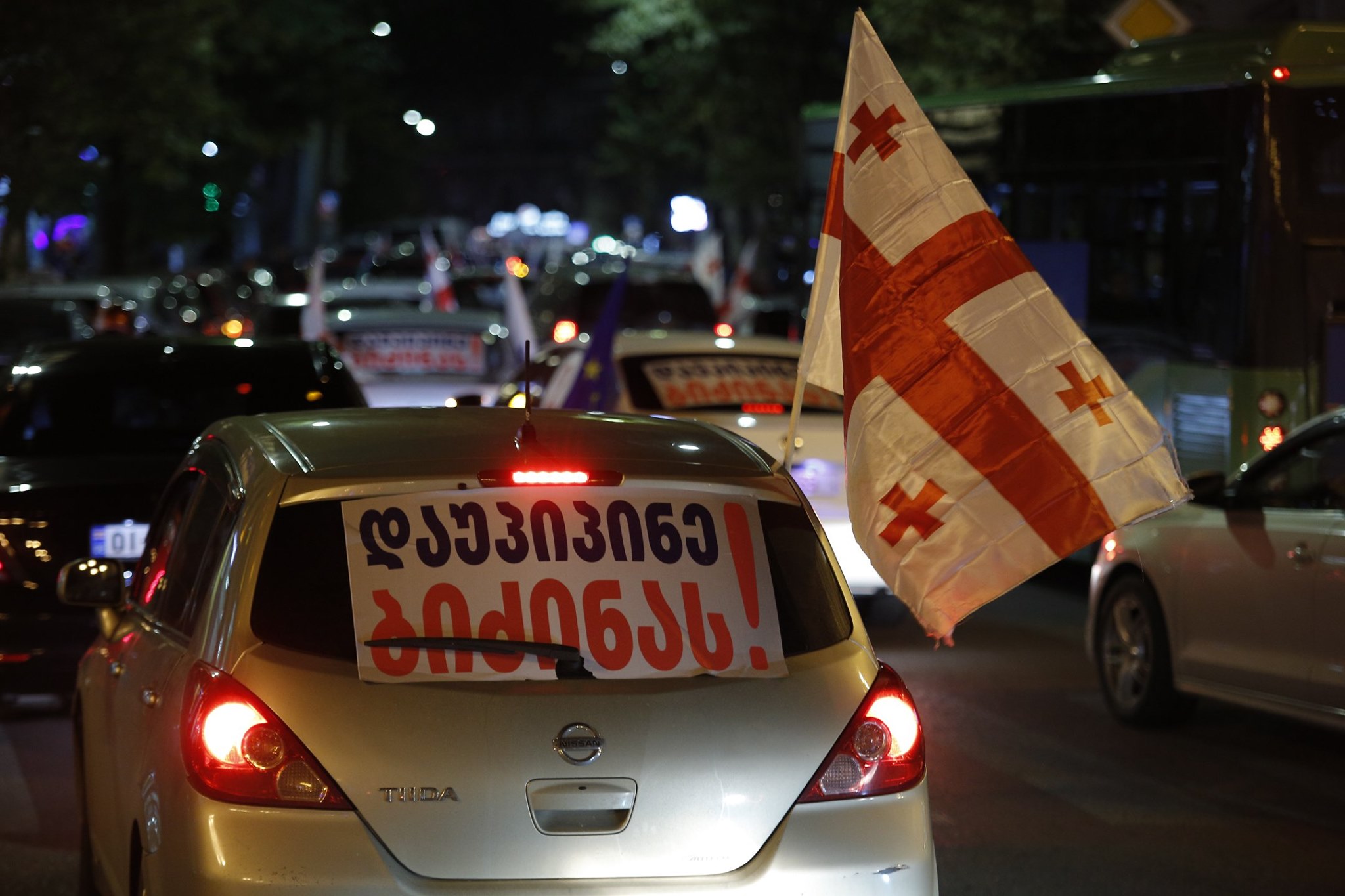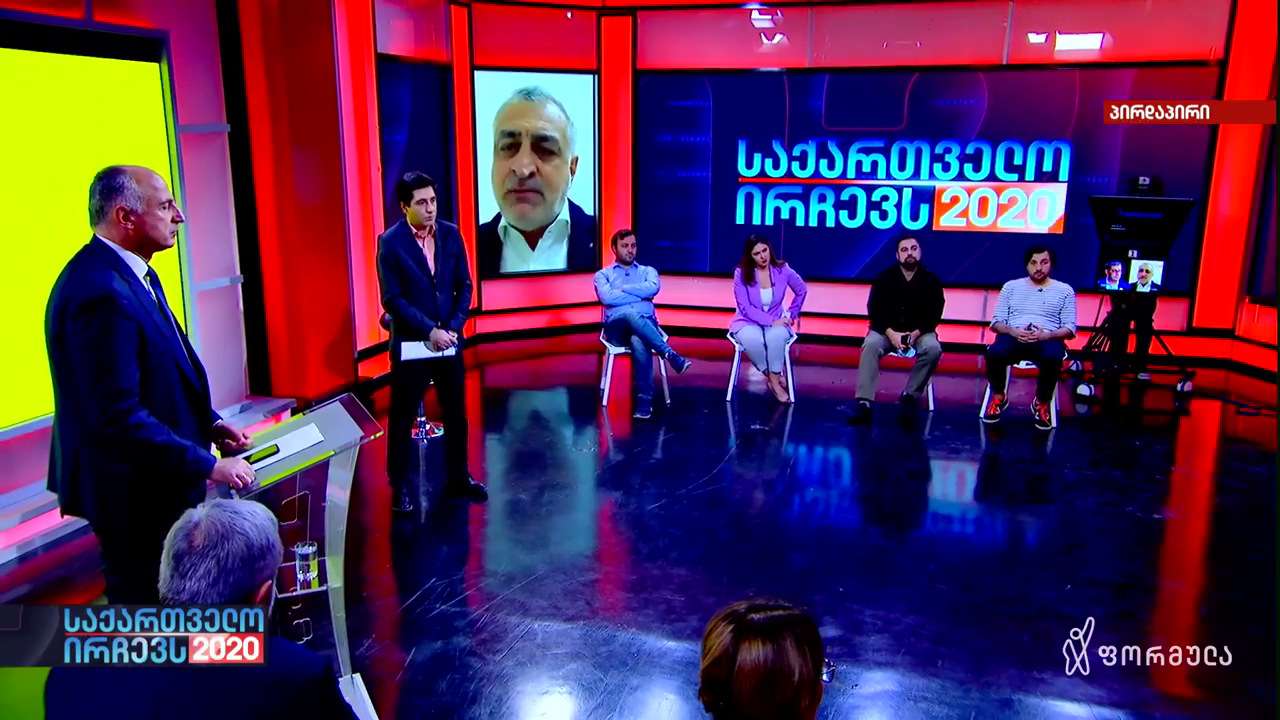‘Safer than supermarkets’: as COVID-19 surges, Georgians brace for parliamentary vote

On Saturday, Georgians will elect the new parliament with an amended electoral system and new social distancing rules, including at the polling stations.
As Georgia witnesses a rise in coronavirus numbers approaching 2,000 new cases per day, the authorities have ruled out a nationwide lockdown. The National Centre for Disease Control (NCDC) have anticipated that COVID-19 numbers will peak in the second half of November.
Georgian PM Giorgi Gakharia has claimed throughout the election campaign that he had no intention of revisiting the date of the vote, insisting that the polling stations would be ‘safer than supermarkets’. Given that only a small fraction of opposition groups have floated the idea of delaying the vote, the election is expected to be held on 31 October.
Georgian authorities have taken several steps to adapt the elections to the pandemic.
In September, parliament amended the Electoral Code to free candidates in 2020 from a requirement to pass a drug test before the elections. Lawmakers argued this would spare medical establishments from additional crowds amidst the pandemic.

At polling stations, voters will be required to remove their face mask twice, for identification and to cast their ballot. They will vote in cabins facing a wall instead of being fully veiled, in order to remain relatively ventilated.
Last week, the Central Election Commission (CEC) announced there would be special lists to deliver ballot boxes to those in coronavirus hospitals, quarantine zones, and those recovering or self-isolating at home.
The CEC, however, has obliged voters isolating at home due to coronavirus to register by 26 October to have a ballot box delivered to them on Saturday.
The deadline, which has already been extended twice after pushback from opposition groups, could still leave thousands who test positive or have to self-isolate in the next three days unable to vote.
Due to pandemic precautions, Georgia will also have less international observers than usual. The OSCE/ODIHR have cancelled their plan to bring 350 short-term observers to Georgia, limiting their capacity to 13 experts based in Tbilisi and 27 long-term observers.
A campaign amidst anti-coronavirus measures
The pandemic substantially influenced the campaign period.
While the government exempted campaign events from anti-coronavirus regulations concerning gatherings, most political groups moved from mass events to smaller meetings and door-to-door campaigning.
Groups vying for seats tried to socially distance at open-air campaign events but were not consistent in wearing protective face masks at all times while meeting voters.
This including several campaign meetings by Georgian Dream, the ruling party, which tried to contrast themselves with rivals by insisting they observed the guidelines.
On 26 October, Irakli Kobakhidze, Georgian Dream’s Executive Secretary, went as far as calling one recent gathering by the opposition United National Movement Party (UNM) in Batumi ‘sabotage’.
Large open-air presentations by the UNM-led Strength in Unity coalition in the cities of Batumi and Kutaisi were criticised for not abstaining from gathering large crowds without social distancing.

The exemption from coronavirus-related curbs for campaign meetings, according to law enforcement agencies, did not include meetings hosted by libertarian group Girchi in bars in Tbilisi. Several bars in the capital, which have been prohibited from operating after 22:00, were fined after opening for Girchi events.
The bars hoped to avoid fines by changing the format of their operations.

While several candidates contracted coronavirus throughout the campaign — including Lelo party leader Mamuka Khazaradze and Kakha Kukava, chair of the Free Georgia party — none of the groups stopped their campaign.
Still a mixed system but parliament expected more diverse
On Saturday, among 150 MPs Georgians will elect, only 30 will be from majoritarian constituencies, instead of 73 as previously.
While the ruling Georgian Dream party planned to abolish majoritarian seats entirely by 2024, they had no intention to reduce their number for this year’s election until pressured by opposition and activist groups to do so.
The majoritarian element of the mixed system has traditionally helped the ruling party to stay in power.
Winning the election outright will be further complicated by a 40% minimum threshold required for any political group to form a government.
As polls released during the last two years have given Georgian Dream a strong lead, most opposition groups have rallied around the idea of forming a coalition government as a panacea to one-party rule.
In addition to strengthening the party-list component in the electoral system (120 seats up from 77 in the last election), the changes adopted in June also reduced the threshold to enter parliament from 5% to 1%.
As a result, the upcoming parliament is expected to be the most diverse since 1992.









